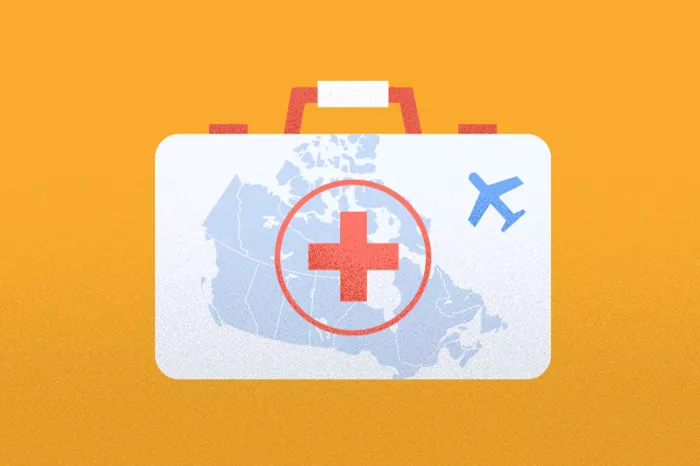Traveling opens up a world of new experiences, adventures, and opportunities to explore. However, it also presents certain risks, particularly regarding health. This brings us to the question: Do I need travelers health insurance? In this comprehensive guide, we will delve into the importance of having health insurance while traveling, what it covers, and how to determine whether it’s a necessity for your next trip.
Understanding Travelers Health Insurance
Travelers health insurance is designed to cover medical expenses incurred while you are traveling outside your home country. It can be crucial for protecting you against unexpected health issues that may arise during your journey. Here’s an overview of what this insurance typically covers:
1. Medical Expenses
Travelers health insurance can cover a range of medical expenses, including hospital stays, doctor visits, and prescription medications. It can be especially valuable if you are traveling to a country with high medical costs or where your regular health insurance does not provide coverage.
2. Emergency Medical Evacuation
In case of a serious medical emergency, travelers health insurance may cover the cost of emergency medical evacuation. This can be necessary if you need to be transported to a facility with specialized care or even back to your home country.
3. Trip Interruption and Cancellation
Some travelers health insurance policies also include coverage for trip interruption and cancellation. If you need to cancel your trip due to a medical emergency or if you have to cut your trip short, this coverage can help reimburse you for non-refundable expenses.
4. Repatriation of Remains
In the unfortunate event of death, travelers health insurance can cover the costs associated with repatriating your remains back to your home country.
Assessing the Need for Travelers Health Insurance
Deciding whether you need travelers health insurance depends on several factors. Here’s a closer look at some key considerations:
1. Destination
Your travel destination plays a significant role in determining the need for health insurance. Countries with high healthcare costs or those where your home insurance does not offer coverage may warrant travelers health insurance. Additionally, some destinations may have specific health risks that make insurance more crucial.
2. Duration of Travel
The length of your trip can influence your decision. For short trips, you might weigh the costs of insurance against the potential risks. For longer stays, the benefits of having coverage often outweigh the cost.
3. Existing Health Insurance Coverage
Check if your current health insurance extends coverage abroad. Many health insurance plans offer limited or no coverage outside your home country. If your insurance does not cover international travel, purchasing travelers health insurance may be necessary.
4. Health Conditions and Risk Factors
If you have pre-existing health conditions or engage in activities with higher health risks (such as extreme sports), travelers health insurance can provide essential protection. It can cover unexpected medical expenses related to these conditions or activities.
5. Cost vs. Benefits
Evaluate the cost of travelers health insurance against the potential expenses you could incur without it. Consider the financial impact of medical emergencies, evacuation, and trip cancellations. Insurance can often be a cost-effective way to mitigate these risks.
Types of Travelers Health Insurance
There are several types of travelers health insurance policies available. Understanding the differences can help you choose the right coverage for your needs:
1. Basic Travel Medical Insurance
Basic travel medical insurance provides coverage for emergency medical expenses and, in some cases, emergency medical evacuation. It is typically the most affordable option and suits travelers who need essential health coverage.
2. Comprehensive Travel Insurance
Comprehensive travel insurance offers more extensive coverage, including medical expenses, trip cancellation, lost luggage, and other travel-related issues. It provides a broader range of protection but may come with a higher premium.
3. Annual Multi-Trip Insurance
If you travel frequently, annual multi-trip insurance can be a convenient option. It covers multiple trips within a year and offers flexibility for frequent travelers. It often includes both medical coverage and other travel-related benefits.
4. High-Risk Insurance
For travelers engaging in high-risk activities or those with pre-existing health conditions, high-risk insurance provides additional coverage tailored to these needs. It ensures protection against specific risks associated with these activities or conditions.
How to Choose the Right Travelers Health Insurance
Selecting the appropriate travelers health insurance involves several steps:
1. Assess Your Needs
Identify your specific requirements based on your travel destination, duration, existing health coverage, and personal health risks. This assessment will help you determine the type of insurance that best meets your needs.
2. Compare Policies
Compare different policies to find the best coverage for your situation. Look for policies that offer comprehensive medical coverage, emergency evacuation, and other relevant benefits. Pay attention to policy limits, exclusions, and any additional features.
See Also: Best Private Health Insurance in 2024
3. Check Reviews and Ratings
Research insurance providers and read reviews to gauge their reliability and customer service. Choose a reputable provider with a track record of handling claims efficiently and providing excellent support.
4. Understand the Terms
Carefully read the terms and conditions of the policy, including coverage limits, exclusions, and the claims process. Ensure you understand what is covered and what is not to avoid surprises in case you need to make a claim.
5. Purchase the Insurance
Once you’ve selected a policy, purchase the insurance as early as possible. Some policies require you to buy insurance shortly after booking your trip to cover pre-existing conditions or trip cancellations.
Common Misconceptions About Travelers Health Insurance
There are several misconceptions about travelers health insurance that can lead to confusion. Here are some of the most common ones:
1. My Home Health Insurance Covers International Travel
Many people assume their home health insurance provides adequate coverage while traveling. However, most domestic health insurance plans offer limited or no coverage abroad. Travelers health insurance is specifically designed for international travel and fills this gap.
2. Travel Insurance Is Only for Emergencies
While travelers health insurance primarily covers emergencies, some policies also include coverage for non-emergency medical needs, such as prescription medications or routine doctor visits in certain situations.
3. It’s Too Expensive
The cost of travelers health insurance varies depending on the coverage and duration of your trip. For many travelers, the cost of insurance is a small price to pay compared to the potential expenses of an unexpected medical emergency. Compare policies to find affordable options that meet your needs.
4. Insurance Is Not Necessary for Short Trips
Even for short trips, unexpected medical emergencies can occur. The cost of medical care in some countries can be exorbitant, making insurance a wise investment for protecting yourself from unforeseen expenses.
Conclusion
In summary, deciding whether you need travelers health insurance depends on various factors, including your destination, trip duration, existing health coverage, and personal health risks. Travelers health insurance offers essential protection against unexpected medical expenses, emergency evacuation, and other travel-related issues. By understanding your needs, comparing policies, and selecting the right coverage, you can ensure a safer and more secure travel experience. As you plan your next adventure, consider the importance of travelers health insurance and how it can provide peace of mind during your journey.
FAQs
1. What is travelers health insurance?
Travelers health insurance is a type of insurance designed to cover medical expenses and other related costs that may arise while you are traveling outside your home country. It typically includes coverage for emergency medical treatment, hospital stays, doctor visits, and prescription medications. Some policies also offer additional benefits such as emergency medical evacuation, trip cancellation, and repatriation of remains. This insurance is essential for protecting yourself against unexpected health issues that could occur during your trip, especially in countries where medical costs are high or where your existing health insurance may not provide coverage.
2. Do I really need travelers health insurance if I already have health insurance?
While having health insurance is beneficial, it often does not extend coverage outside your home country. Many domestic health insurance plans offer limited or no coverage for international travel, meaning you could face significant out-of-pocket expenses if you need medical care abroad. Travelers health insurance fills this gap by providing coverage specifically for medical emergencies and other related issues during your trip. It’s especially important if you are traveling to destinations with high healthcare costs, or if you have existing health conditions or engage in high-risk activities.
3. How do I choose the right travelers health insurance policy?
Choosing the right travelers health insurance policy involves several steps:
Assess Your Needs: Consider factors such as your travel destination, the duration of your trip, your existing health coverage, and any personal health risks. This will help you determine the type of insurance that best suits your needs.
Compare Policies: Look for policies that offer comprehensive medical coverage, emergency evacuation, and any additional benefits you may need. Compare coverage limits, exclusions, and premiums to find the best option.
Check Reviews: Research insurance providers and read reviews to ensure they are reputable and provide good customer service. Choose a provider with a strong track record of handling claims efficiently.
Understand the Terms: Carefully read the terms and conditions of the policy, including what is covered and what is not. Make sure you understand the claims process and any limitations of the coverage.
Purchase Early: Buy the insurance as soon as possible after booking your trip. Some policies require you to purchase insurance shortly after booking to cover pre-existing conditions or trip cancellations.
4. What does travelers health insurance typically cover?
Travelers health insurance generally covers:
Emergency Medical Expenses: This includes costs for hospital stays, doctor visits, surgeries, and prescription medications required due to a medical emergency.
Emergency Medical Evacuation: If you need to be transported to a facility with specialized care or back to your home country for treatment, the insurance will cover these costs.
Trip Cancellation and Interruption: If you need to cancel or cut short your trip due to a covered reason, such as a medical emergency, the policy may reimburse you for non-refundable expenses.
Repatriation of Remains: In the event of death, the insurance will cover the costs of repatriating your remains to your home country.
Other Benefits: Some policies may offer coverage for lost luggage, travel delays, or additional services such as emergency assistance.
5. Can I purchase travelers health insurance after I start my trip?
It is generally advisable to purchase travelers health insurance before you start your trip. Most policies require that you purchase insurance prior to leaving your home country to ensure coverage for any medical emergencies or travel-related issues that may arise. Some policies may allow for late purchases, but coverage might be limited or excluded for events that occurred before the insurance was purchased. To ensure comprehensive protection, it’s best to buy the insurance as soon as you book your trip.






















